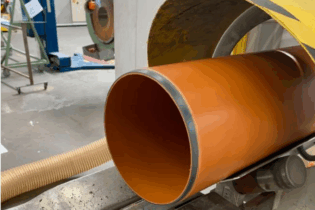It was with great interest that the South African Institution of Civil Engineering (SAICE) has followed the Auditor General’s discussion on the state of the audits of local authorities in South Africa. The report is cross-cutting and has reference to many aspects of civil society. Agri Northwest recently announced that farmers have started harvesting in the Lichtenburg district. In most countries harvesting is a cause for celebration but these farmers are in trepidation as they have to get their crops to markets across roads of which the conditions have been described as appalling. Some of the ‘tarred’ roads were so bad that, in order to be able to travel on them, they had to be covered with sand. Farmers now have to budget for increased expenditure on maintaining their vehicles and that while billions have been spent on tenders given to contractors either not following procedures or on incompetent cronies that could not ‘fix’ the roads. And that in view of Terence Nombembe, the Auditor General’s announcement that R11 billion has been misspent by local authorities. It is high time that those guilty of these practices should be punished as Minister of Finances, Pravin Gordhan, has said. In order to do that South Africa needs government buy-in to punish whoever is guilty, regardless of political or personal affiliations. Before that happens, all is but lip service to the so-called anti-corruption initiatives. Out of a total of 343 local authorities, six new municipalities from KwaZulu-Natal, Limpopo, Mpumalanga and the Western Cape have joined the ranks of municipalities this year to bring the total of municipalities that made the grade to 13 (5%), Terence Nombembe explained. He continued by saying, “Where appropriate action is taken by leaders and key officials, we are beginning to see results. What these provinces are beginning to display is the outcome of concerted efforts on the part of political leaders and management. They are moving forward towards the clean audit space by consistently committing to take ownership of municipal performance practices, insisting on adequately qualified staff and effective performance management practices.” He said that the slow progress towards clean audits in local government is, among other, due to a “lack of minimum competencies of officials in key positions (most evident in the financial discipline at 72% of auditees”. But isn’t this what we have been hearing over the last ten years?
Progress to address local authority issues, be it the audit, service delivery in the various disciplines of water, sanitation, housing, roads, waste management or the collection of money owed, etc., is very limited. The key is to have the right people with the right attitudes and qualifications in the right positions to do the work or at least to oversee what others need to be doing. As far as infrastructure is concerned, it is general knowledge that many local authorities have not even one civil engineering professional in its employ. How does one address service delivery issues without a single competently qualified engineer? How can a municipality exert control over projects worth millions without such a person/s. It is just not possible.
• Government has to pay for the failed projects, then re-do the project all with tax-payers’ money; thus service delivery is jeopardised – think of Minister Sexwale’s findings on houses falling apart and which have to be rebuilt.
• Properly run companies are on the brink of going under because of non- or very late payment by government institutions.
• There is a serious lack of project roll-out by government and then to have non-compliant contractors do the work without the necessary project management skills in all tiers of government , borders on criminality in a country where so many of our communities are in dire need of the very basic services.
• Civil and other engineering professionals are considering leaving the country.
• Food security is jeopardised – South Africa has already moved from being an exporter of food to being an importer of basic foods.
• More and more responsibilities are wound down to local authority level. Who is making these decisions when it is known that most local authorities cannot meet existing challenges because of non-performance? Possible solutions
As far as infrastructure for service delivery is concerned, South Africa needs civil engineering professionals, 88% of whom are currently ageing, pale males (APMs). Only 12% are from other groups, and this situation will remain for many years to come. Dr Martin van Veelen, 2012 president of SAICE, says that a civil engineer can only gain ten years’ experience by working for ten years. Young engineers will inevitably have to go through the process of graduating and gaining knowledge. Their working experience will lead to competency and eventually to wisdom. And wisdom is eventually what is needed to make responsible decisions. Our upcoming civil engineering professionals are in the process of attaining this, but it takes time. However, these pale engineers with the competencies and wisdom are still active and are available, but will be retiring in the next five to 12 years. Should government not use them, South Africa’s hope of improving its people’s quality of life through service delivery will be severely jeopardised, as civil engineering is at the heart of infrastructure development and service delivery. A golden opportunity would be lost – to the detriment of the very poor. National government departments should take over responsibility for infrastructure development and maintenance from failed local authorities by making use of private sector civil engineering companies in joint ventures to get the projects done within time and within budget (one payment/cost per project) and get the country, especially rural areas, running. Only with decent infrastructure everywhere can we hope to start addressing poverty alleviation and job creation. The 2010-model regarding infrastructure development has to be implemented – South Africa cannot afford double pay for projects. Get projects on the table, have them designed, constructed, managed and operated by competent professionals and allow South Africa to prosper economically. Failed infrastructure equates a failed economy.
So what should be done?
Some government departments are making noises about using the ageing, pale males with their competencies and wisdom to pull the infrastructure cart stuck in the mud onto a smooth road without potholes. This is encouraging news. Even if universities and universities of technology could produce sufficient numbers of youngsters in the profession they will need many years to attain the above wisdom. Allowance should be made for this time lapse by using the available pale males. Institutions such as SAICE, Consulting Engineers SA (CESA), SA Federation of Civil Engineering Contractors could assist government in these kinds of ventures. This will ensure that the National Development Plan will not just remain a plan on paper. Without making use of the existing resource, this is exactly what will happen. My plea today is: Please keep the farmers’ trucks on the roads, government out of the courts, and people inside safe dwellings – use the APMs!

by Marie Ashpole (SAICE)






